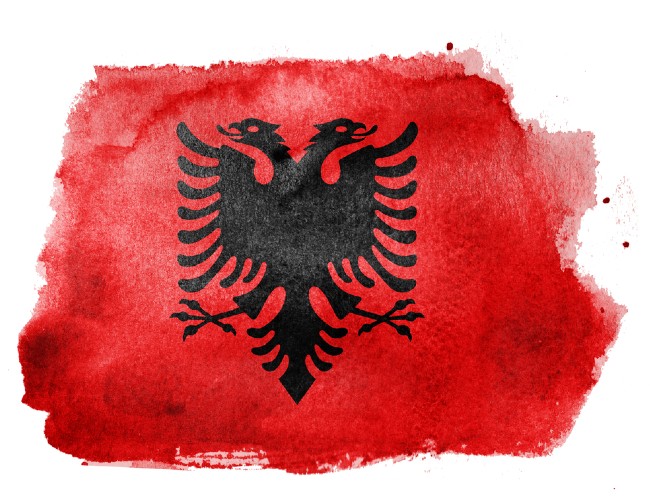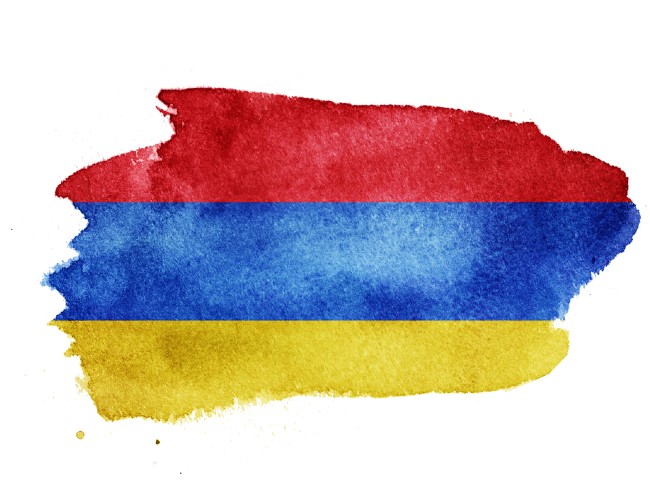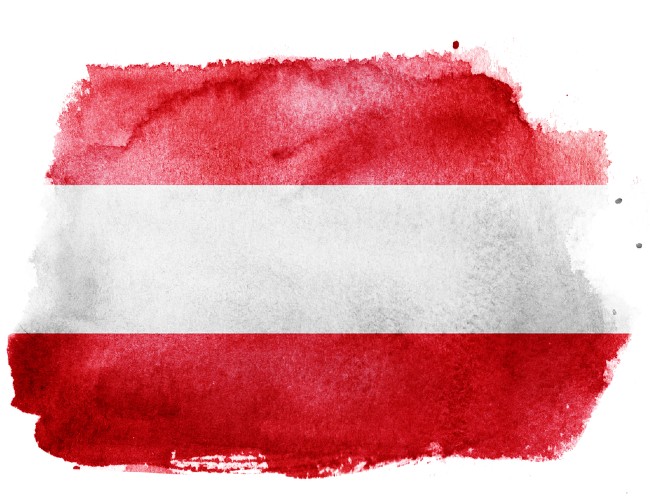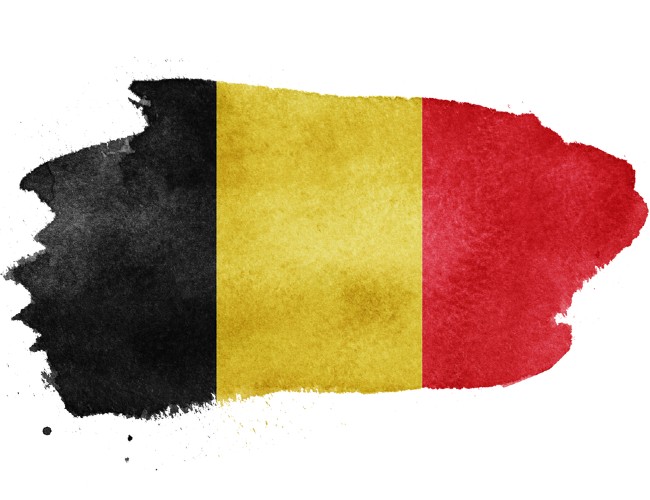What is the Eurovision Song Contest?
Started way back in 1956 as a way of drawing a fractured Europe back together with the healing power of music, the Eurovision Song Contest, or Concours Eurovision de la Chanson – the contest is telecast in both English and French – is open to all active members of the European Broadcasting Union, which oversees the competition.
Each country is permitted to submit one three-minute song to the contest – a song which is selected by a variety of means, usually a winner-takes-all competition such as Sweden’s renowned Melodifestivalen – which their selected entrant performs in one of two semi-finals in the hopes of making it to the glittering grand final.
Only six countries have direct entry into the grand final:
- The Big Five who fund most of the contest – UK, Germany, France, Italy and Spain
- The host country (which is the winner of the previous year’s contest)
In a change for 2024, the grand final six will now perform in full in the semi-final in which their countries are voting; so Germany, Sweden and the UK will perform in semifinal one while France, Italy and Spain will perform in the second semifinal.
The winner is chosen by a 50/50 mix of viewer votes (you cannot vote for your own country and for 2024, voting will now be permitted from the start of the grand final) and a jury of music industry professionals in each country, a method which was chosen to counter the alleged skewing of votes based on political and/or cultural lines when voting was purely the preserve of viewers at home.
Past winners include, of course, ABBA in 1974 with “Waterloo” and Celine Dion who won for Switzerland in 1988 with “Ne partez pas sans moi”.Above all though, the Eurovision Song Contest is bright, over the top and deliciously camp, a celebration of music, inclusiveness and togetherness that draws annual viewing figures in the hundreds of millions.
This year’s event
The Grand Final of the Eurovision Song Contest 2024 will take place in the Malmö Arena on Saturday 11 May with Semi-Finals on Tuesday 7 and Thursday 9 May. The 68th Eurovision Song Contest will be hosted by a Hollywood star and an iconic Eurovision-veteran; Malin Åkerman and Petra Mede will together lead the three broadcasts, live from Malmö Arena. Swedish broadcaster SVT, together with the European Broadcasting Union (EBU), will organise the Contest thanks to Loreen’s historic win in Liverpool in 2023. (courtesy and (c) Eurovision.tv)
THE ARTIST
In keeping with a prevailing trend in music generally, Albania’s 2024 Eurovision entry, BESA, has discovered the joys and emphatic certainties of capitalisation.
Off stage, the all caps mostly gives way to lower case letters, and Besa Kokëdhima, born in the city of Fier, is, according to her official Eurovision bio, the daughter of “mathematician parents, who encouraged her to develop her artistry from a very early age.”
This took the form, most markedly, of the singer, who’s also known for her activism on animal rights, social causes and equality (of what or whom we’re not certain), emigrating to the UK when she was 15 to go to high school.
She kicked off her career with the single “Më Beso” (Believe Me), which led to her debut album in 2006, Besa, and participation in all kind of music contests including Notafest where she won first prize for the R&B influenced song “Lëshoje Hapin” (Release the step) and for the first time, in 2009 at Selecţia Naţională which selects Romania’s entry for the Eurovision Song Contest.
Not so successful there, though she did make it to the semi-finals, but clearly triumphant in late 2023 when she won the televote at Festivali i Këngës 62 which, for only the second time determined the Albanian Eurovision representative, ensuring that she would head to Malmö with her winning song, “Zemrën n’dorë”, given, for the event, the English title of “Titan”.
(courtesy Eurovision.tv)
THE SONG
So after a career built on “catchy hooks and exuberant performances” does “Titan” have what it takes to elevate BESA even further into the pop & R&B firmament?
Yes … and no.
The song is undoubtedly thoughtful and infectiously listenable, especially in the final stretch when it not only affects a fun key change but picks the tempo quite considerably from earnest ballad to dancefloor banger, and it has the requisite Eurovision-worthy lyrics of effecting strength and bravery in the face of dark and terrible challenges, so on paper at least a winner.
But while it’s undoubtedly a slice of sophisticated pop and sung with some real passion, it’s really only likely to send Albania to the grand final but not much beyond that.
It’s lovely but a little too formulaic, more ticking boxes than authentic pop, and it will possibly limit how much “Titan” appeals to the wider Eurovision audience (the only caveat here is if she delivers a massively impactful live performance which she’s capable of and which the song will definitely benefit from).
THE ARTIST
The all-caps brigade has ridden into town for a second time in this review and this time it’s to magnify the musical moniker of a French-Armenian duo composed of Armenian singer Jaklin Baghdasaryan and French multi-instrumentalist Louis Thomas.
LADANIVA bring together world music, especially, and not surprisingly traditional Balkan music and Armenian folklore, with current sounds, and has been active since 2019 after its two members met a year earlier at the Conservatoire de Lille where both were studying music.
Making sweet music together ever since, LADANIVA found success during COVID-19 lockdowns in 2021 with the videos “Vay Aman” and “Zepyuri Nman” and most strikingly with “Kef Chilini” which garnered them millions of views and led to their debut album in 2023.
Travelling extensively throughout Latin America, Africa and Réunion Island, the duo have found all kinds of acclaim and you have to believe that will only increase after an appearance on the Eurovision stage … with the right song, of course …
(courtesy Eurovision.tv)
THE SONG
It’s impossible not to see “Jako” as the absolutely right song.
It’s a captivatingly clever and fun piece of lightly, bubbly upbeat music that feels like a very short but vibrant party.
The locals are energetically boisterous, the music blend the old and new to rousingly pleasing effect and Baghdasaryan’s vocals are an exuberant thing of soul-rousing joy.
It might be wrongly dismissed as a quirky piece of Eurovision pop, which is where some people’s voice of the contest’s musical range begins and ends unfortunately, but “Jako” is clever, vivacious and the kind of song that will surge with extroversive vigour across the stage in Malmö.
Just try and wipe the smile off everyone’s face when Armenia perform and head without a doubt to the grand final where you can expect them to place quite highly.
Now back to the giddy dancing …
AUSTRIA: “We Will Rave” by Kaleen
THE ARTIST
We’re back to the lower caps with Austria’s representative Kaleen aka Marie-Sophie Kreiss who sings, dances and choreographs, the end result of a creative expression that begin at age two when she first began ballet lessons.
In keeping with the prodigious inclinations of many Eurovision entrants, and really most singers and dancers generally, Kaleen won her first ballet contest at the age of seven, following up some 13 years later by reaching the finals, with her dance partner, of 2014’s edition of Got to Dance.
Now professionally engaged as a choreographer and director for the Austrian national broadcaster ORF, which runs the country’s participation in the contest and telecasts it come May, Kaleen also has her own record label on which, you’ll not be surprised to know, she released her 2023 debut album, Stripping Feelings.
Heading to the stage for Austria won’t be her first Eurovision rodeo, she’s been involved closely involved in both the standard and junior versions of the contest, helping to craft, in 2023 for instance, the stage performances for Austria, Armenia, Germany and Georgia.
But this year, it’s all about her …
(courtesy Eurovision.tv)
THE SONG
Being in the spotlight after so long in the collaborative background might be intimidating for some people but you get the feeling it’s just another day at the performative day for Kaleen.
Sporting with enough super beat-heavy ’90s sounds to sink a just pre-21st century battleship, Kaleen’s song is every dance song you either danced to at the time or have discovered via the streaming wonders of the digital age.
It’s insanely, breathtakingly catchy and unlike many modern songs which pay homage to a bygone musical age, “We Will Rave” is all authentic surging, goosebump-inducing, euphoria-inducing energy and musical vibes.
If this doesn’t absolutely dominate the stage at Eurovision, it will be a huge surprise because it has a captivating beat, lyrics and music that implore not to remain seated and a singer that definitely knows her way around a dancefloor …
BELGIUM: “Before the Party’s Over” by Mustii
THE ARTIST
Mustii, with two “i”s is a triple threat, able to act, sing and write songs with equal ability, a multiple gift of talents that has seen him release two highly-successful albums, 21st Century Boy and It’s Happening Now and garner a spot as a judge on Drag Race Belgique.
Hailed in his Eurovision bio for being a “flamboyant performer” who is “no stranger to Belgian audiences”, Mustii has also starred in a range of TV shows and movies including La Trêve, Grave, Un Petit Boulot and L’Echange des Princesses.
That kind of success has been built on studying his craft – he graduated from theatre studies at the Institut des Arts de Diffusion (Louvain-la-Neuve) in 2012 – and constant work in a variety of plays including 2014’s staging of Romeo and Juliet at the Riches-Claires in Brussels.
Clearly he is an artist who can seamlessly move between his musical and theatrical pursuits, which will stand him in good stead at Eurovision where the music and the staging very much go hand-in-sequined-hand.
(courtesy Eurovision.tv)
THE SONG
But as Shakespeare might have said if he had borne witness to Eurovision, the song’ is everything’s the thing, and if you don’t have a track that will cut through the blissfully intense musical sounds of the contest, all the talent in the world might count for not much at all.
The interesting thing about “Before the Party’s Over” is that, at first, it sounds like it’s going to make of an impression at all.
It starts off lo-fi quiet, all quietly-expressed emotionally restrained vocals and while it’s lovely, you beginning to think that that will be that – see you later Belgium, nice try but not much presence going on here.
Then just after the halfway mark, Mustii who co-wrote the song, “Before the Party’s Over” starts ratcheting up the musical and emotional intensity, letting loose in the bridge and subsequent final chorus with so much passion, fury and urgency that, with the right staging, and Mustii looks to have that all sewn up, he could not only romp from second semi-final to the grand final but place very highly indeed.
THE ARTIST
Unlike some of her second semi final compatriots, Alena Shirmanova-Kostebelova, better known professionally as Aiko, is all about the lower caps.
Born in Russia, raised in Czechia (the new name for the Czech Republic) and how resident in Brighton, England (fitting for the 50th anniversary of ABBA’s win at Eurovision in that very city), Aiko is a singer-songwriter who first rose to prominence in 2015’s reality talent show, Česko Slovenská SuperStar before a move to the UK to pursue a career in music.
It’s more than paid off with Aiko being, according to Wikipedia, the first Czech artist to appear on the Times Square screens and the first female Czech artist to take part in the Spotify Equal Campaign which “supports women music through education, inspiration and networking opportunities”.
She’s performed at an impressive raft of festivals, released three albums including her 2018 self-titled debut, and supported artists like Tamino and Black Honey on their tours.
All that success and experience means she is well placed to knock it out of the park in Malmö after absolutely delivering the musical goods in the Czech national finals in November 2023.
(courtesy Eurovision.tv)
THE SONG
Still, as we’ve seen before, all the talent and experience in the known musical world counts for nothing if the song is not up to the task.
But on my lord, “Pedestal” is more than up to the task, a rock masterpiece full of bristling emotion, stingingly direct girl power lyrics and music that has incredible energy, danceability and not a little song-fuelling anger.
It’s has a quiet bridge that gives a breather and a moment of contemplation before it screams into a driving final chorus that is not taking any prisoners and making it abundantly clear that she will “be loving her more” without any apology.
It’s a chart topping powerhouse of a song that will sweep all before it in the second semi final and slip Czechia comfortably into the top 10 where it will very much belong.
Now let’s go see the neighbourhood!










